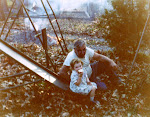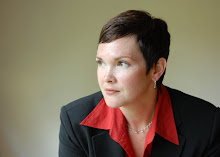.jpg)
.jpg) I finally got the chance to meet Flavius Jankauskas (K3JA). He was one of the heroes I wrote about in World War II Radio Heroes. He wrote to my family at the age of 16 and then shortly thereafter went to sail ships for the wars effort himself, with the Merchant Marines.
I finally got the chance to meet Flavius Jankauskas (K3JA). He was one of the heroes I wrote about in World War II Radio Heroes. He wrote to my family at the age of 16 and then shortly thereafter went to sail ships for the wars effort himself, with the Merchant Marines.I found Flavius when I reached out to another Jankauskas in the Philly area. This lovely man called me and said, "I don't know Flavius. I'm not even related to him! But, I've heard of him. I'd like to help you find him." And, he did. Within a week he had a good phone number and address for Flavius. We connected and have stayed in touch ever since.
Flavius was responsible for much of what I learned about short wave and ham radio during WWII, and today. He sent me package after package of things he found in the attic and basement from those days. It was always like Christmas when I got something from Flavius!
It took me too long to get there- 3 years! But, alas, I was able to meet him and his lovely companion, Friedl, in person, just a few weeks ago.
I spent a few hours with them, chatting as though we were old friends. Well, we are- even though we had not met in person before. I learned about Flavius' days in the opera- how fantastic! We talked about radios and his life and the irony of us all finding each other so many years after his wonderful deed to my family.
Flavius gave me the Howard 430 radio that he heard my grandfather's name on in 1943. I told him I'd treasure it and share it with others on my book tours. When the time comes, we'll make sure it goes into a museum for all to enjoy long after us.
My visit was as wonderful as I had always envisioned. He and Friedl are as wonderful in person as they are over the phone and email. I'm very fortunate to have met them. I look forward to my next visit!








